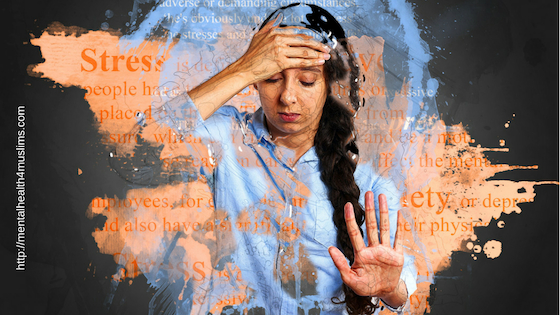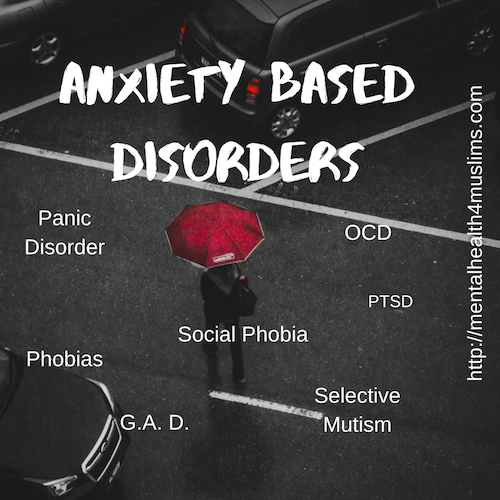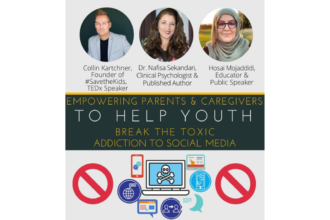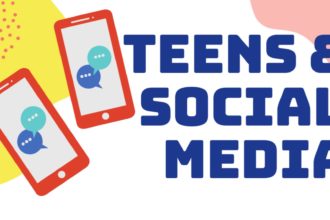Top 10 Effective (Medication Free) Strategies For Dealing With Anxiety

“O Allah, I seek refuge in you from grief and sadness, from weakness and from laziness,
from miserliness and from cowardice, from being overcome by debt and overpowered by men”.
~Al-Bukhari
Anxiety is the number one disorder in the world. Over 70% of all emergency room visits in the United States have been related to anxiety. Although over 40 million people in the United States suffers from anxiety, only about 37% of people diagnosed with anxiety receive treatment.
Anxiety is a symptom related to repressed emotions in the body. Anxiety can express itself as excessive nervousness, fear, apprehension, and worry. Anxiety can interfere with how an individual process emotions and impact behavior but it can also lead to physical symptoms as well. Anxiety can range from mild anxiety, where individuals feel vague or unsettled, to severe anxiety, which drastically impacts day to day living.
The American Psychological Association (APA) defines anxiety as “an emotion characterized by feelings of tension, worried thoughts and physical changes like increased blood pressure.” Understanding the difference between normal levels of anxiety and an ANXIETY DISORDER which requires treatment can help an individual identify and treat the condition. Although anxiety can cause distress and feel uncomfortable, it doesn’t always require medical attention.
Fight or Flight Response
When anxiety is related to a potentially harmful situation, the feelings of anxiety are not only normal but necessary for survival. As humans, we have a built in alarm system that goes off when our body senses a threat to ourselves or loved ones. The alarms present as increased heartbeat, sweating, and hyper-vigilance to our environment. Our body also starts to feel a rush of adrenalin which triggers the “fight or flight” response in the body. This fight or flight response prepares us to either attack and confront the threat or run for safety. Imagine being confronted by a large animal. Your body will sound the alarm and activate the fight or flight response. At that moment you have a choice to either confront the animal or run for safety. Our body’s ability to get back to a state of calm after the threat is over is called homeostasis. Unfortunately for many people, the threat is no longer isolated to one dangerous animal every once in a while. Many people now are constantly stressed about work, money, family life, health, traffic, and the news. Since our brain does not distinguish between real or imagined threats, our body’s fight or flight system is activated frequently, never allowing the body to get back to homeostasis.
When our body’s fight or flight response gets triggered regularly, we become hypersensitive to everything in our environment. The duration and severity of the stress and anxiety can be out of proportion to the original stressor. When we end up with physical symptoms such as increased blood pressure and nausea, the symptoms lead to an anxiety disorder. The APA defines an anxiety disorder as “having recurring intrusive thoughts or concerns.”
Once anxiety reaches the stage of a disorder, it can interfere with daily function.
 The Anxiety Umbrella
The Anxiety Umbrella
Many types of anxiety based disorders fall under the Anxiety umbrella such as Generalized Anxiety Disorder (GAD), Obsessive Compulsive Disorder (OCD), Panic Disorder, Phobias, Post Traumatic Stress Disorder (PTSD), and Acute Stress.
The following symptoms are at the base of all anxiety based disorders.
- restlessness, and a feeling of being “on-edge”
- uncontrollable feelings of worry
- increased irritability
- concentration difficulties
- sleep difficulties, such as problems in falling or staying asleep
While we’ve all experienced these symptoms at some point in our lives, people with an anxiety based disorder experience these symptoms to persistent or extreme levels. The qualifying criteria for anxiety based disorders is the severe disruption to day-to-day functioning.
Anxiety Types
Generalized anxiety disorder: This is a chronic disorder involving excessive, long-lasting anxiety and worries about nonspecific life events, objects, and situations. GAD is the most common anxiety disorder, and people with the disorder are not always able to identify the cause of their anxiety.
Panic disorder: Brief or sudden attacks of intense terror and apprehension characterize panic disorder. These attacks can lead to shaking, confusion, dizziness, nausea, and breathing difficulties. Panic attacks tend to occur and escalate rapidly, peaking after 10 minutes. However, a panic attack might last for hours. Panic disorders usually occur after frightening experiences or prolonged stress but may also occur without a trigger. An individual experiencing a panic attack may misinterpret it as a life-threatening illness, and may make drastic changes in behavior to avoid future attacks.
Specific phobia: This is an irrational fear and avoidance of a particular object or situation. Phobias are not like other anxiety disorders, as they relate to a specific cause. A person with a phobia might acknowledge a fear as illogical or extreme but remain unable to control feelings anxiety around the trigger. Triggers for a phobia range from situations and animals to everyday objects.
Agoraphobia: This is a fear and avoidance of places, events, or situations from which it may be difficult to escape or in which help would not be available if a person becomes trapped. People often misunderstand this condition as a phobia of open spaces and the outdoors, but it is not so simple. A person with agoraphobia may have a fear of leaving home or using elevators and public transport.
Selective mutism: This is a form of anxiety that some children experience, in which they are not able to speak in certain places or contexts, such as school, even though they may have excellent verbal communication skills around familiar people. It may be an extreme form of social phobia.
Social anxiety disorder, or social phobia: This is a fear of negative judgment from others in social situations or of public embarrassment. Social anxiety disorder includes a range of feelings, such as stage fright, a fear of intimacy, and anxiety around humiliation and rejection. This disorder can cause people to avoid public situations and human contact to the point that everyday living is rendered extremely difficult.
Separation anxiety disorder: High levels of anxiety after separation from a person or place that provides feelings of security or safety characterize separation anxiety disorder. Separation might sometimes result in panic symptoms.
Causes for Anxiety Disorders
The causes of anxiety disorders are complicated. Many might occur at once, some may lead to others, and some might not lead to an anxiety disorder unless another is present.
Possible causes include:
- environmental stressors, such as difficulties at work, relationship problems, or family issues
- genetics, as people who have family members with an anxiety disorder are more likely to experience one themselves
- medical factors, such as the symptoms of a different disease, the effects of a medication, or the stress of an intensive surgery or prolonged recovery
- brain chemistry, as psychologists define many anxiety disorders as misalignments of hormones and electrical signals in the brain
- withdrawal from an illicit substance, the effects of which might intensify the impact of other possible causes
Top 10 Natural Treatment Options for Managing Anxiety
Treatment options can consist of a combination of psychotherapy, behavioral therapy, lifestyle changes, and medication.
Self-treatment:
1.) Dietary Changes: One of the most important changes you can make in your journey of overcoming anxiety is your diet. In my practice, my patients see immediate relief from anxiety once they start eating better and focusing on feeding their brain and their gut. Our gut houses over 3 pounds of bacteria that is responsible for WAY MORE than digestion. When our gut bacteria is balanced, we feel calm, focused, and happy. The gut bacteria release the feel good neurochemicals since most are stored in the gut instead of the brain. The gut biome can easily be disturbed and damaged with eating processed foods that are full of hormones, pesticides, and ANTI-BIOTICS. Antibiotics kill off all bacteria…good and bad. Limiting the use of antibiotics as well as eating meats without antibiotics can make a huge difference to the balance of bacteria in your gut. Eating more fermented foods, eating clean proteins, more green leafy vegetables, and limiting processed foods and sugar can help restore your gut health.
2.) Good Sleep Hygiene: Sleep is essential to our overall physical as well as mental health. Getting good adequate sleep is essential to repair and recovery of our brain. When our brain is rested and repaired, we will feel calmer and less anxious. Sadly most people do not practice good sleep hygiene. They stay up way too late and don’t give their brain a chance to rest. Many sleep with lights or the TV on, many can’t disconnect fully from their cell phones, and many are on too many sleep meds to get the deep sleep they need. Our brain needs a very quiet, dark, and cool environment, away from electronics, to get the deep rest and recovery it needs.
3.) Yoga, QiGong, & Guided Meditation: Managing stress is essential to the management of anxiety. Learning to manage stress can help limit potential triggers. Organize any upcoming pressures and deadlines, compile lists to make daunting tasks more manageable, and commit to taking time off from study or work. Incorporating relaxation strategies with simple activities such as yoga, QiGong, and Guided Meditations can help soothe the mental and physical triggers of anxiety. To try a self guided 21 Day Meditation Challenge, go here.
4.) Aroma Therapy: Natural plant based scents trigger the emotional center of our brain and can be used to treat many emotional disorders such as depression and anxiety. Essential oils such as, Lavender, Vetiver, Ylang Ylang, Rose, Bergamot, and Chamomile have proven to significantly reduce anxiety and depression symptoms. You can either diffuse the oils in the air or use topically mixed with almond or coconut oil.
5.) Physical exercise: Physical exertion can improve self-image and release chemicals in the brain that trigger positive feelings. According to some studies, regular exercise works as well as medication for some people to reduce symptoms of anxiety and depression, and the effects can be long lasting. One vigorous exercise session can help alleviate symptoms for hours, and a regular schedule may significantly reduce them over time.
6.) Tapping: Tapping or Emotional Freedom Technique (EFT) is a relaxation technique based on the principles of acupuncture and is a remarkably effective drug-free way to alleviate anxiety. The theory behind tapping is that all negative emotions are caused by a disruption in the body’s energy system and that tapping can restore balance to this system. Tapping neutralizes any judgment you have about your anxiety and removes limiting beliefs you developed in the past that contribute to your anxiety
7) Journaling: One of the ways to deal with any overwhelming emotion is to find a healthy way to express yourself. This makes a journal a helpful tool in managing your mental health. Journaling can help you manage your anxiety, reduce stress, and cope with depression. Journaling helps control your symptoms and improve your mood by helping you to prioritize problems, fears, and concerns, track symptoms day-to-day so that you can recognize triggers and learn ways to better control them and provide an opportunity for positive self-talk and identifying negative thoughts and behaviors. When you have a problem and you’re stressed, keeping a journal can help you identify what’s causing that stress or anxiety. Once you’ve identified your stressors, you can work on a plan to resolve the problems and reduce your stress.
Use this exercises to replace negative thoughts with positive ones:
Make a list of the negative thoughts that might be cycling as a result of anxiety, and write down another list next to it containing positive, believable thoughts to replace them. Creating a mental image of successfully facing and conquering a specific fear can also provide benefits if anxiety symptoms relate to a specific cause, such as in a phobia.
Professional Treatment:
8.) Massage & Acupuncture: Massage and Acupuncture are great ways to get relief from Anxiety. Massage therapy has more recently been used for the treatment of mental and emotional problems, including stress, anxiety, and depression. Massage therapy may be able to help reduce tension and elicit feelings of calm and deep relaxation. Massage may also be able to curb feelings of fear and anxiety, plus assist in managing other panic disorder symptoms. Acupuncture is another natural, drug free treatment option for treating anxiety. Make sure to seek out licensed acupuncturists that specialize in treating anxiety with acupuncture.
9.) CBT Counseling: A standard way of treating anxiety is psychological counseling. This can include cognitive-behavioral therapy (CBT), psychotherapy, or a combination of therapies. Cognitive Behavior Therapy (CBT) is a type of psychotherapy which aims to recognize and change harmful thought patterns that form the foundation of anxious and troublesome feelings. In the process, practitioners of CBT hope to limit distorted thinking and change the way people react to objects or situations that trigger anxiety. An example for CBT being used in therapy would be to reinforce the fact that panic attacks are not really heart attacks. Exposure to fears and triggers can be a part of CBT. This encourages people to confront their fears and helps reduce sensitivity to their usual triggers of anxiety.
10.) EMDR: Eye movement desensitization and reprocessing (EMDR) works by directing eye movements while imagining distressing scenarios and shifting your attention toward more positive thoughts, causing anxiety to dissipate. One of the benefits of EMDR is that you don’t necessarily have to talk about painful memories, making the therapy particularly inviting for those who have trouble verbalizing their experiences or for whom those experiences remain too painful to talk about. Rather, using EMDR for anxiety can be a largely internal process during which you are gently guided by a trained mental health professional who seeks to lead you out of a place of anxiety toward one of safety and inner tranquility. This process can allow you to access parts of yourself that traditional talk therapy may not be able to reach.
Du’a for relief from Anxiety
It is recorded in Musnad Ahmad and Sahih Abu Hatim on the authority of ‘Abdullah bin Mas’ud that the Messenger of Allah ﷺ said, “Whoever was afflicted with grief and anxiety and says (see the following), Allah, the Exalted and Ever-Majestic, will remove his grief and will change his sorrow into happiness.” It was said, “O Messenger of Allah! (Do) we have to learn these words?” He said, “Yes, whoever hears them should learn them.”
للّهُـمَّ إِنِّي عَبْـدُكَ ابْنُ عَبْـدِكَ ابْنُ أَمَتِـكَ نَاصِيَتِي بِيَـدِكَ، مَاضٍ فِيَّ حُكْمُكَ، عَدْلٌ فِيَّ قَضَاؤكَ أَسْأَلُـكَ بِكُلِّ اسْمٍ هُوَ لَكَ سَمَّـيْتَ بِهِ نَفْسَكَ أِوْ أَنْزَلْتَـهُ فِي كِتَابِكَ، أَوْ عَلَّمْـتَهُ أَحَداً مِنْ خَلْقِـكَ أَوِ اسْتَـأْثَرْتَ بِهِ فِي عِلْمِ الغَيْـبِ عِنْـدَكَ أَنْ تَجْـعَلَ القُرْآنَ رَبِيـعَ قَلْبِـي، وَنورَ صَـدْرِي وجَلَاءَ حُـزْنِي وذَهَابَ هَمِّـي
O Allah, I am Your slave and the son of Your male slave and the son of your female slave. My forehead is in Your Hand (i.e. you have control over me). Your Judgment upon me is assured and Your Decree concerning me is just. I ask You by every Name that You have named Yourself with, revealed in Your Book, taught any one of Your creation or kept unto Yourself in the knowledge of the unseen that is with You, to make the Qur’an the spring of my heart, and the light of my chest, the banisher of my sadness and the reliever of my distress.
Join the FACEBOOK “Transform Anxiety” Group


Hi Dr Sekandari,
I read your page on OCD in Islam. I’ve suffered from OCD for a decade since i was 12. The main reason to why i feel like its still there is because some part of me keeps thinking and believing that it’s given to me by Allah SWT. That the rituals i perform after every thing I’m afraid of happening or that which causes my anxiety, is a way of me preventing it from happening. For example if i meet someone who is addicted to drugs, and i shake hands with my right hand (good) that means I’ll also become a drug addict. And if i shake hands with my left hand (bad) then that is securing the fact that i will not become an addict. I do these things as if that is the only way Allah will save me from it is if i perform the ritual. And if was to shake hands with my left or not perform the ritual at all then Allah will punish me with addiction.
I know it’s confusing and it’s even more confusing for me to explain. But i really wanted to hear what you thought about it. Is it really just in my head? Is OCD a sort of gift from Allah that prevents bad things from happening if you follow it? Or is this also just the shaitan? Do I fight it and ignore it or is OCD my way to salvation?
Please please let me know what you think.
I’m currently doing a FREE video series about dealing with anxiety. You can watch it at https://drsekandaricourses.com/Registration